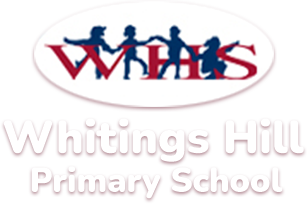History
‘‘A high-quality history education will help pupils gain a coherent knowledge and understanding of Britain’s past and that of the wider world. It should inspire pupils’ curiosity to know more about the past.’
National Curriculum 2014
INTENT
At Whitings Hill, History is brought to life, enabling children to explore like detectives and work like historians, making them curious and passionate learners. Over their years at Whitings Hill, pupils experience a rich curriculum, learning about key historical events in Britain’s past and how they shaped our present, as well as learning about historical civilisations and periods across the world. Learning about inspirational people and those who have served their communities throughout history form an integral part of our History curriculum.
At Whitings Hill, the study of History involves engaging pupils in investigating ‘big questions’ about people and events in the past. This enables them to better understand their lives today and for a future, as more informed and enlightened citizens. Through the study of History, pupils also develop a wide range of critical thinking skills, which enable them to understand the contested nature of knowledge and to distinguish between fact and subjectivity when it comes to reaching conclusions and making judgements about the past. With this in mind, we have established a school curriculum plan for History as an entitlement for all pupils that is:
-
Logical, and broad and balanced in terms of the areas of subject content we have selected which reflect the guidance and the demands of the National Curriculum. For example, we have ensured that content includes representative investigations of British history spanning the period from the Stone Age to the Norman invasion of 1066 as well as enquiries focusing on the achievements of ancient civilizations such as the Maya, Ancient Egypt and Ancient Greece;
-
Relevant in terms of the careful consideration that has been given to the selection of historical enquiries that extend the knowledge and understanding of pupils beyond 1066 e.g. evaluating the significance of the Battle of Britain;
-
A coherent narrative of British and World History so pupils gain a chronological understanding of the historical eras and events they are studying;
-
Progressively more challenging from Years 1 through 6 both in terms of the complexity of the subject knowledge we want our pupils to acquire and also the critical thinking skills we support them to utilise to ensure they understand the significance of that knowledge
-
Built upon and has continuity with the provision for history established in the Early Years Foundation Stage;
-
Inclusive in terms of delivering the same curriculum to all of our pupils irrespective of specific learning needs or disabilities and adapting our teaching where necessary through, for example, in class support, providing different learning environments, alternative learning activities and assessment outcomes;
-
Rich in historical vocabulary.
IMPLEMENTATION
At Whitings Hill, History is taught in blocks throughout the year, so that children can achieve depth in their learning.
-
Teachers have identified the key knowledge and skills of each unit and theses are mapped across the school, ensuring that knowledge builds progressively and that children develop skills systematically.
-
We have an enquiry-led, knowledge-rich and skills-based approach to developing young historians;
-
Children will be given a knowledge organiser at the start of each topic, which details some key information, dates and vocabulary to support children in their acquisition of knowledge and as a reference document;
-
Existing knowledge is checked at the beginning of each topic. This ensures that teaching is informed by the children’s starting points;
-
Tasks are selected and designed to provide appropriate challenge to all learners, in line with the school’s commitment to inclusion;
-
At the end of each topic, key knowledge is reviewed by the children and checked by the teacher and consolidated as necessary;
-
Cross curricular outcomes in History are specifically planned for;
-
The History provision is resourced and specific resources are mapped to specific year groups and units;
-
Children are given opportunities, where possible, to study artefacts, leading to enquiry, investigation and interpretation;
-
Children are encouraged to discover links and connections to the history they learn and the wider community and locality;
-
Barnet’s School Library Service is fully utilised to provide additional termly resources;
-
Educational visits and visitors enrich the learning experiences of all children;
-
Key questions and examples of children’s work are displayed to create a rich learning environment.
IMPACT
-
Each History lesson has a clear objective and set outcomes for pupils in terms of knowledge and understanding and skills acquisition. Teaching is adapted to ensure that all children are challenged. We ensure that when assessing pupils, evidence is drawn from a wide range of sources to inform the process, including interaction with pupils during discussions and related questioning, day-to-day observations, practical activities such as artwork and role play / drama, the gathering, presentation and communication of information and writing responses. The outcomes of each lesson and ‘big question’ enquiry serve to inform the teacher’s developing picture of the knowledge and understanding of each pupil and to plan future learning accordingly. Outcomes are used to build an emerging picture of what the pupil knows, understands and can do.
-
At the end of each year, we make a summative judgement about the achievement of each pupil. At this point teachers decide upon a ‘best fit’ judgement as to whether the pupil has achieved and embedded the expected learning goals, exceeded expectations or is still working towards the goals. These decisions are based on the professional knowledge and judgement that teachers possess about the progress of each pupil, developed over the previous three terms, which allows an informed and holistic judgement of attainment to be made. Achievement against the learning goals for History at the end of the year is used as the basis of reporting progress to parents.
